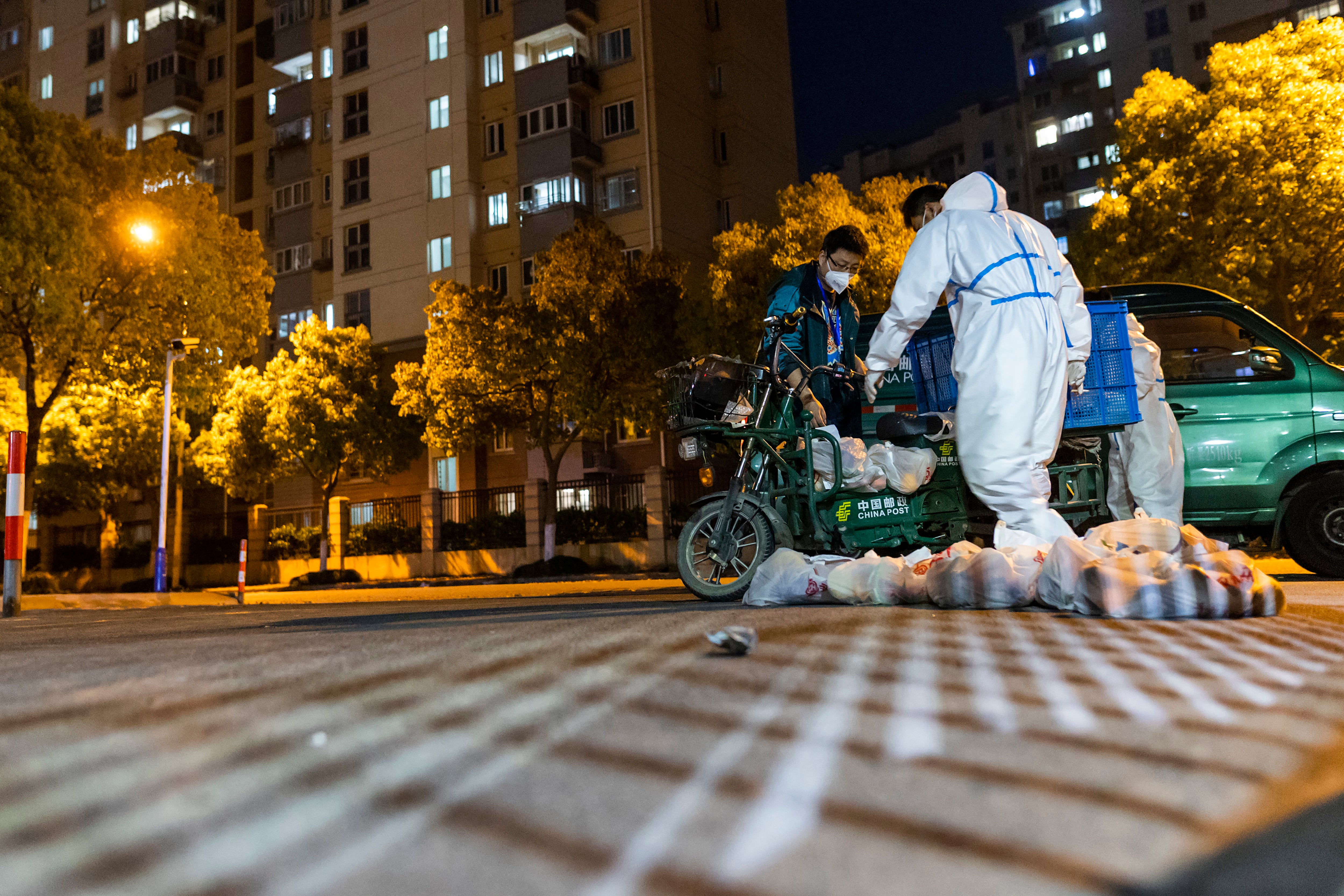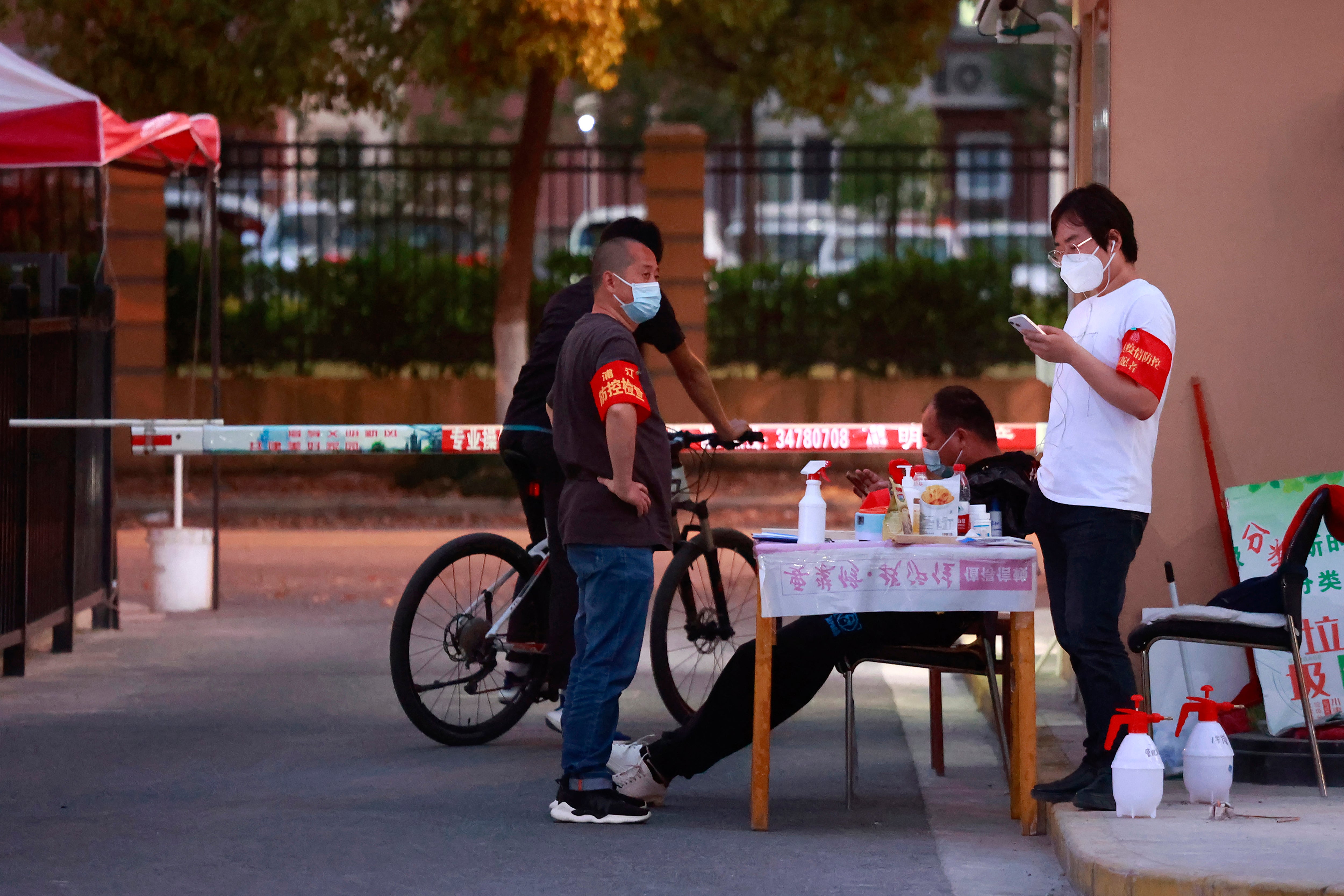US orders consular staff to leave Shanghai amid Covid lockdown
Order comes as Shanghai eases restrictions after two weeks of stringent lockdown
The United States has ordered all its non-emergency consular staff to leave Shanghai amid a strict lockdown imposed on the city following a surge in Covid-19 cases.
The State Department’s late Monday order came after its advisory last week, which authorised the “voluntary departure” of non-emergency employees and their families.
“Our change in posture reflects our assessment that it is best for our employees and their families to be reduced in number and our operations to be scaled down as we deal with the changing circumstances on the ground,” the latest announcement said, urging staff to leave while emergency services remain functional.
The US also issued a series of advisories for Americans in Shanghai, including that they ensure they have a “sufficient supply of money, medication, food, and other necessities for your family in the event of sudden restrictions or quarantine”.
The US also criticised the Chinese government’s policies as it asked Americans to reconsider travel to China due to “arbitrary enforcement” of local laws and Covid-19 restrictions, particularly in Hong Kong, Jilin province and Shanghai. Additionally, the US cited a risk of “parents and children being separated”.
Beijing responded angrily to last week’s voluntary departure advisory, with foreign ministry spokesperson Zhao Lijian saying China was “strongly dissatisfied with and firmly opposed to the US side’s groundless accusation against China’s epidemic response”.
Meanwhile, some residents in Shanghai were allowed out of their homes on Tuesday as the city of 26 million people began easing restrictions following a strict two-week lockdown prompted by a surge in Covid cases driven by the Omicron variant.
Residents in the city were confined to their homes for days as they depended on government drop-offs for essentials and online ordering with a stringent testing and isolation policy in place.

Anger among residents over the strict policies was also visible in some videos on social media, where several people were heard complaining about food shortages and lack of medical supplies.
Authorities in Shanghai announced that from Tuesday, residents in neighbourhoods that have had no cases for at least two weeks would be allowed to go to other “prevention areas” that have also had no infections during that period. There are 7,565 such areas in the city.
People in 2,460 “control areas”, where there have been no infections in the past week, can go out of their homes but not leave their neighbourhoods. Those in “quarantine areas” cannot leave their homes.
City health official Wu Qianyu said at a press briefing that residents from lower-risk zones were still subject to controls and would have to observe strict social distancing measures.
“After a long period of lockdown, it is understandable that people want to go out and get some air, and they need to go shopping for food and medicine and go for medical treatment,” she said. “But if lots of people gather in a disorderly way, it will cause hidden dangers to our epidemic prevention work.”

The move came amid concerns about the economic impact on the financial centre as efforts are being made to reopen supermarkets, convenience stores and pharmacies. But non-essential businesses will remain suspended.
China’s case numbers are low compared to the rest of the world, but the government’s “zero-tolerance” strategy entails strict restrictions which have suspended access to major cities to isolate every infected person.
Shanghai had earlier remained far more relaxed in comparison to other Chinese cities that have undergone similar stringent lockdowns due to its key role in the country’s economy.
Shanghai reported a record high combined number of cases on Monday, with 914 symptomatic cases and 25,173 asymptomatic cases.
Additional reporting by agencies
Join our commenting forum
Join thought-provoking conversations, follow other Independent readers and see their replies
Comments
Bookmark popover
Removed from bookmarks